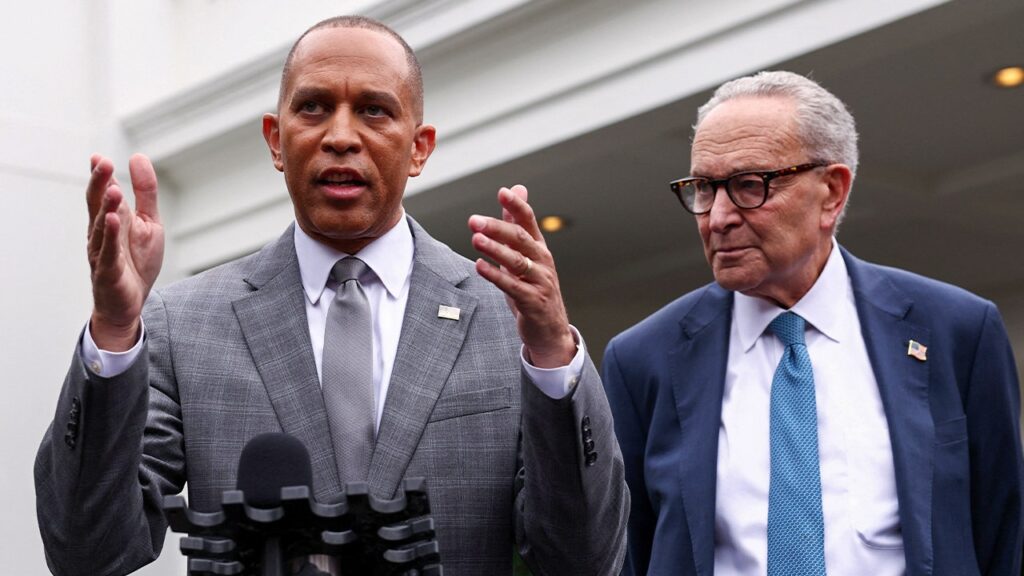As the government shutdown moves into its third week, the political theater in Washington has taken some peculiar turns that would make even the most seasoned observer scratch their head and wonder what in tarnation is going on in our nation’s capital.
House Speaker Mike Johnson stood firm today against accusations from Democratic leadership, particularly responding to House Minority Leader Hakeem Jeffries’ claims that Republicans bear the responsibility for the current impasse. Johnson, speaking with the measured tone of someone who knows he’s in for a long fight, argued that Democrats are simply playing to their far-left base rather than seeking genuine solutions.
The political messaging war has become about as clear as mud on a moonless night. Senate Minority Leader Chuck Schumer raised more than a few eyebrows when he declared to reporters that “Every day gets better for us” regarding the shutdown – a statement that landed about as well as a lead balloon with both the public and his Republican colleagues.
Recent polling tells us something that shouldn’t surprise anyone who’s spent time in American politics: the blame game isn’t working particularly well for either side. A fresh survey shows 67% of Americans point fingers at Republicans, while 63% hold Democrats accountable – numbers close enough to make a statistician blush.
The Democrats’ strategy has focused primarily on healthcare, particularly the extension of enhanced Obamacare subsidies set to sunset at year’s end. While Americans broadly support maintaining these subsidies, they’re increasingly weary of government shutdowns being used as political leverage, regardless of which party holds the cards.
Julian Epstein, a veteran of past congressional battles, put it plain as day: “Democrats keep choosing the wrong fights. At best, this shutdown gives them a political draw, but they’re not likely to see any game-changing victories from this strategy.”
As this political standoff continues, the real impact is being felt far from the marble halls of Congress. Federal workers face mounting uncertainty, military families worry about delayed paychecks, and essential government services hang in the balance. Meanwhile, both parties continue their dance around compromise, each waiting for the other to blink first.
The path forward remains about as clear as a Texas dust storm, with neither side showing signs of backing down. As one seasoned observer noted, it’s starting to look less like governance and more like a high-stakes poker game where the American people are the ones paying the ante.
That’s the way it is – for now. But in Washington, as in life, the only constant is change, and tomorrow may bring a whole new set of cards to the table.


